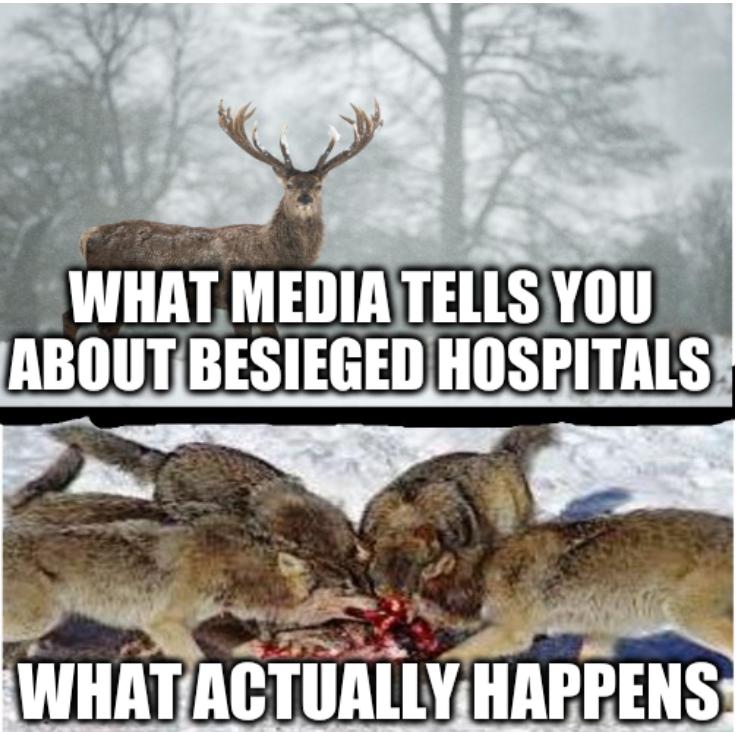

THE previous part and the introductory one spoke about how Microsoft quite likely killed more people than COVID-19 has killed so far. The media rarely reported on these things after they had happened; and when it did mention incidents, it typically said nothing about the role of Microsoft software, notably Windows. There's a cover-up. That's a problem. It prevents medical facilities, especially hospitals, from exploring better choice of tools, including software tools.
“I decided to write about the things that most shocked me, both as an employee and as a patient.”
--AnonymousIt's about known incidents being reported. "Ultimately," the source argued, "I decided to write about the things that most shocked me, both as an employee and as a patient."
The source spoke of "shuttered emergency room, the maternity ward, doctors sent home, the Trump-like lockdown with threats against anyone who dared talk, the staff panic..."
There are gagging efforts. Nobody is allowed to speak to anybody. There are threats.
Also, "what little actually leaked out," the source told us, "and the fortune teller-like experience given to patients to try to cover the fact that the hospital lost everything. The response was to lock out Microsoft competitors."
Having studied some press coverage about this, the source said the articles "target the patient experience and create some false impressions. It implies that hospitals have an effective records system and that hackers don't have patient information."
“A records blackout is a disaster - the doctor has to depend on the patient's memory and records.”
--AnonymousCiting one particular article (we try not to give clues about sources, e.g. locations), the person said "the main false impression is that the hospitals have some sort of backup system that works, which is complete bullshit. The article implies that the cut-off is limited to patient scheduling systems, that what the patient experiences on the phone or in person at the hospital does not mean the doctor has no way of looking up your prescriptions or medical history."
And it gets worse...
"That's designed to hide the main life-threatening implications of these attacks" on Windows, we were told. "Electronic medical records systems promised "meaningful use," timely access to information that improves patient care. A records blackout is a disaster - the doctor has to depend on the patient's memory and records. There are no paper records and there's no way to get electronic records from "the cloud" when the network is completely shut down as it is. Nothing works and the backups and replacement servers are destroyed as soon as they go live until the criminals are paid off, because all of it uses the same crappy software and the ransomware takes over every Windows desktop on the network."
The attacks go even further, we're told, having been presented with some supportive evidence.
"The second false impression [from media coverage] is that the hackers don't have copies of patient records."
“Any reasonable person would look at the situation and assume the criminals have copies of the records and have added them to the thriving privacy violation and blackmail market dominated by banks, government, Microsoft, Apple, Facebook, and other PRISM partners.”
--AnonymousThere's one particular article that shows this. "This article hits the key phrases I've seen in lots of articles," the source said, "[such as] "no evidence" of exfiltration. In reality the ransomware people have complete control of the hospital records and probably have them weeks or months before they start demanding ransom money. This is a lie with a purpose. In the US at least, incident reporting is required when records are improperly accessed. The law is generous as it is, giving the business months to respond, but it requires individual patient notification and posting to a public, federal list of shame."
Then there's this analogy. "It reminds me of Chernobyl operators insisting that radiation levels after the accident were no higher than their pegged indicators because they did not know the actual level," we were told, "so had no evidence of anything higher. Any reasonable person would look at the situation and assume the criminals have copies of the records and have added them to the thriving privacy violation and blackmail market dominated by banks, government, Microsoft, Apple, Facebook, and other PRISM partners."
In the next part we'll provide some more details about responses, cover-ups, misreporting, victim-blaming and so on. ⬆